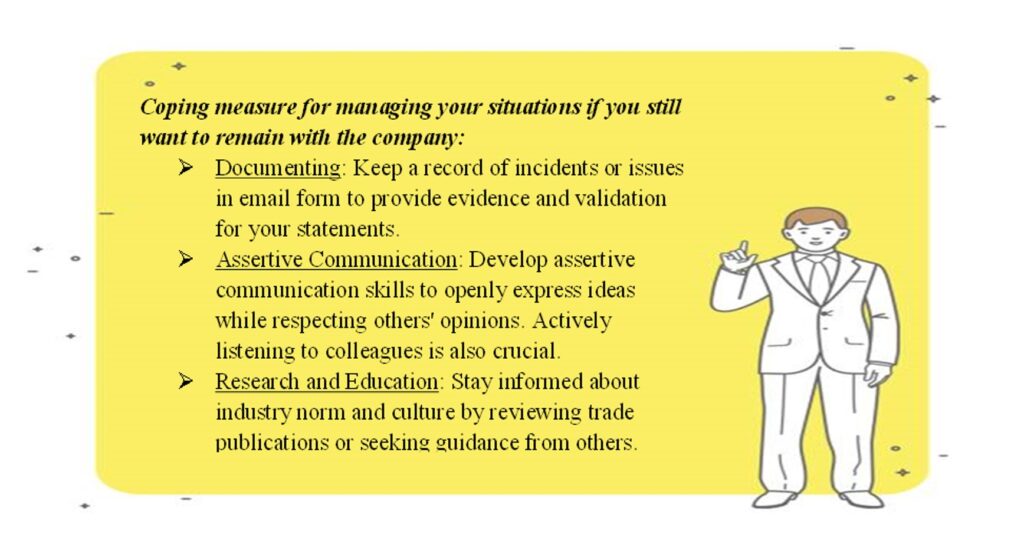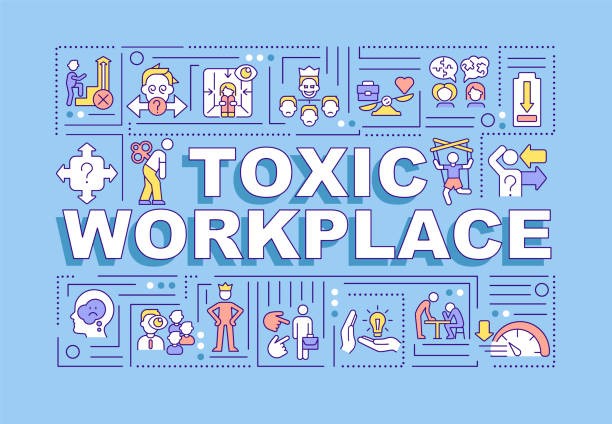To recognize if you are in a toxic work environment, you can check in with yourself if you repeatedly and chronically have been feeling that your incentives and rewards are dependent on adhering to certain norms and practices which are ethically, morally and psychologically non-conducive.
Let us explore the psychological aspects of toxic work environment and discuss the impact it can have on individuals.
Are you in a Toxic Environment?
Recognizing if one is in a toxic environment is challenging as we often endure the negativity due to several reasons. For example, financial crunch, low self-confidence, etc. Let us find out, what happens to us if we are in a toxic work environment. Here are few signs:

- You may wake up with feeling of fear and thought of avoiding the day
- You may be constantly looking at the time and waiting for the day to get over as soon as it can.
- You may not feel motivated and attentive in the meetings
- Procrastinate and cover-up the given task
- You may go to any lengths to avoid interactions
- You may find that your core values are not aligning with the work environment. For example, you may have ethical disagreements, you may feel uncomfortable with inclusivity and diversity policies, etc.

These behaviours can reflect a disengagement and disconnection from the work or social setting, where individual may struggle to find motivation or satisfaction in their work. These factors can contribute to sleep disturbances, feelings of anger or frustration, and a general sense of burnout.

Overall, we all share a common humanity and we all deserve to work in a healthy and supportive environment, but how can we create this environment that fosters positivity and wellbeing?
- We can make a significant impact by showing empathy and extending a helping hand to our colleagues who may be experiencing a toxic work environment.
- Simple gestures of support, such as actively listening, offering assistance, or providing words of encouragement, can go a long way.
- Showing that we care and understand them by recognizing and valuing their unique strengths and contributions.

An inclusive and supportive workplace can only be created when individuals feel empowered and valued. By promoting collaboration, growth, and prioritizing mental health, we not only foster a positive work environment but also contribute to building a sense of humanity and being good human beings.
Intern,
Butterfly Psychotherapy Center, Pune.

